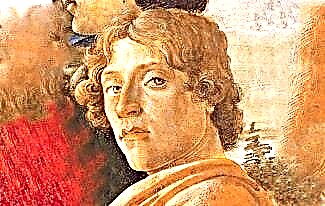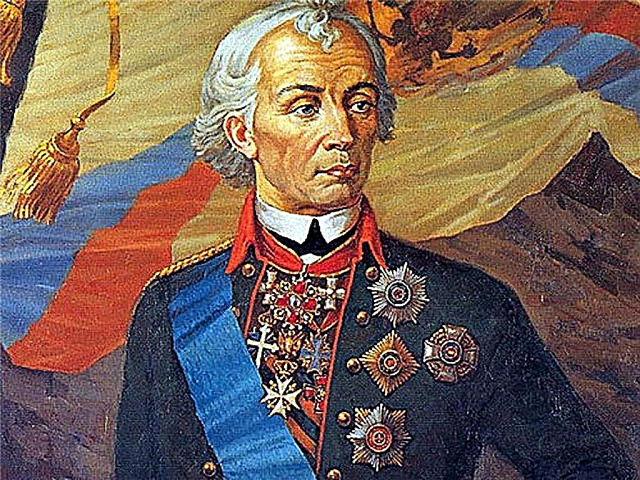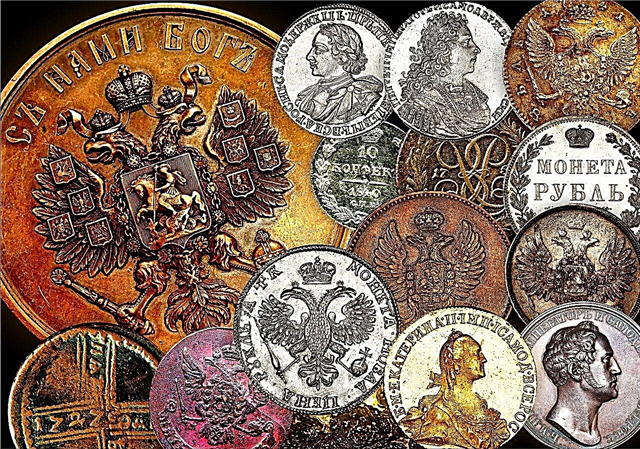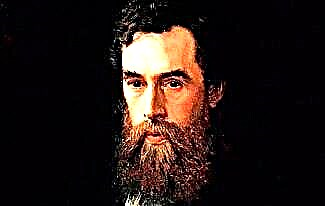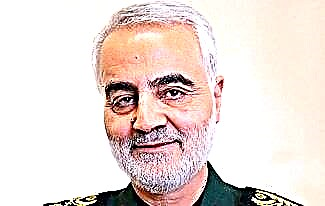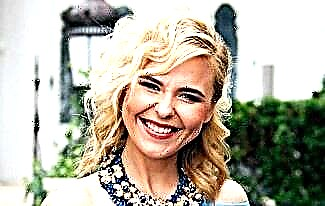Poet, translator, essayist and playwright Joseph Brodsky (1940 - 1996) was born and raised in the Soviet Union, but spent most of his adult life in the United States. Brodsky was the author of brilliant poetry (in Russian), excellent essays (mostly in English) and works of other genres. In 1987, he won the Nobel Prize for Literature. In 1972 Brodsky was forced to leave the USSR for political reasons. Unlike other emigrants, the poet did not return to his homeland even after political changes. The persecution in the press and a prison term for parasitism that was sucked from the finger left a wound too deep in his heart. However, emigration did not become a disaster for Brodsky. He successfully published his books, lived a decent life and was not consumed by nostalgia. Here are some facts, gleaned from interviews and stories from Brodsky or his close friends:

1. By his own admission, Brodsky began writing poetry at the age of 18 (he dropped out of school at the age of 16). His first two poems were published when the author turned 26. In total, 4 works of the poet were published in the USSR.
2. Brodsky did not deliberately engage in political protests or civic activity - he was bored. He could think about some things, but he did not want to start specific actions.
3. Favorite composers of the poet were Haydn, Bach and Mozart. Brodsky tried to achieve Mozart's lightness in poetry, but due to the lack of expressive means in poetry compared to music, the poetry sounded like a child, and the poet stopped these attempts.
4. Brodsky tried to write poems in English, however, rather for the sake of entertainment. After a couple of works, the matter did not go.
5. Censorship, the poet believed, has a beneficial effect on the development of metaphorical language in particular and poetry in general. In principle, Brodsky said, the political regime had practically no influence on Soviet literature.
6. In the USSR, while working as a geologist, Brodsky traveled to many regions of the Soviet Union, from Siberia and the Far East to Central Asia. Therefore, the threat of the investigator to exile him, where Makar did not drive the calves, made Brodsky smile.

7. A very strange episode happened in 1960. 20-year-old Brodsky and his friend Oleg Shakhmatov set out to hijack an airplane from the USSR to Iran beyond talking and buying tickets for the flight, the matter did not go (they simply canceled), but later Shakhmatov told law enforcement officers about their plan. For this episode, Brodsky was not brought to justice, but at the trial they recalled him on charges of parasitism.
8. Despite the fact that Brodsky was a Jew and suffered from this more than once in school, he was in the synagogue only once in his life, and even then he was drunk.
9. Brodsky loved vodka and whiskey from alcohol, he had a good attitude to cognac and could not rub light dry wines - because of the inevitable heartburn.
10. The poet was sure that Yevgeny Yevtushenko knew about the intention of the Soviet authorities to expel him from the camp a month before. However, the famous poet did not inform his colleague about this. Brodsky characterized Yevtushenko as a liar in terms of the content of poetry, and Andrei Voznesensky as a liar in its aesthetics. When Yevtushenko was admitted to the American Academy, Brodsky left it.

11. Anti-Semitism in the USSR was most pronounced among writers and other intellectuals. Brodsky hardly ever met anti-Semites among the working people.
12. For six months Brodsky rented a dacha near Leningrad in Komarovo near the house where Anna Akhmatova lived. The poet never once mentioned his romantic feelings for the great poetess, but spoke of her with discouraging warmth.

13. When Anna Akhmatova died in 1966, Joseph Brodsky had to attend to her funeral - her husband refused to participate in their organization.
14. There were many women in Brodsky's life, but Marina Basmanova remained in charge. They broke up back in the USSR in 1968, but, already living in the USA, Brodsky constantly remembered Marina. One day he met a Dutch journalist very similar to Marina, and immediately proposed to her. Joseph even went to Holland for a copy of Marina, but returned disappointed - Marina-2 already had a lover, and she was also a socialist.

Marina Basmanova
15. “A holy place is never empty,” Brodsky reacted to the news that he had been released from prison on the same day that the arrest of Sinyavsky and Daniel was announced.
16. Over the years, Joseph began to write much less poetry. If in the 1970s from under his pen 50-60 works were published annually, which in 10 years barely 10-15.
17. Marshal GK Zhukov Brodsky called the last red Mohican, believing that the introduction of tanks by Zhukov into Moscow in the summer of 1953 prevented the coup d'etat conceived by LP Beria.
18. Brodsky linked the swiftness of his departure from the USSR with the upcoming visit of the American president to the country. In the Soviet Union, on the eve of Richard Nixon's arrival, they swiftly tried to remove all disaffected from the horizon.
19. In New York, the poet fell in love with Chinese and Indian cuisine. At the same time, he considered the numerous Georgian and Armenian restaurants in the United States to be just variants of the cuisine traditional for Europeans.
20. Brodsky took part in the escape to the United States of the famous ballet dancer Alexander Godunov (later Godunov became a fairly famous actor). The poet provided the dancer with refuge in the house of one of his acquaintances, and then helped him in negotiations with his wife Elena, who was blocked by the US authorities at the airport. Kennedy, and in the receipt of American documents by Godunov. Lyudmila Vlasova safely flew to her homeland, where she became a sought-after choreographer, who staged dances for numerous figure skating stars. Elena Iosifovna is still alive. Godunov, 16 years after his escape to the United States, died of chronic alcoholism.

Alexander Godunov and Lyudmila Vlasova. Still together ...
21. The poet underwent two open heart surgeries. His blood vessels were changed in close proximity to the heart, and the second operation was the correction of the first. And, despite this, Brodsky drank coffee until the last days of his life, smoked cigarettes, tearing off the filter, and drank alcohol.
22. Deciding to quit smoking, Brodsky turned to the physician-hypnotist Joseph Dreyfus. Such specialists in the USA are very expensive for their services. Dreyfus was no exception. Joseph first wrote a check for $ 100, and only then the appointment began. The doctor's magical passes amused Brodsky, and he did not fall into a hypnotic trance. Dreyfus was a little upset, and then said that the patient has a very strong will. The money, of course, did not return. Brodsky was perplexed: what strong will there can be in a person who cannot quit smoking?
23. For several years in a row Brodsky celebrated Christmas in Venice. This became a kind of ritual for him. He was buried in this Italian city. The love for Italy was not accidental - even in the Leningrad period of his life, the poet was closely acquainted with the Italians who studied in Leningrad in graduate school. It was Gianni Buttafava and his company who instilled in the Russian poet a love for Italy. Brodsky's ashes are buried in Venice.
24. The announcement of the award of the Nobel Prize in Literature found Brodsky in London at lunch with the famous detective genre master John Le Carré.
25. At the 1987 Nobel Prize Ball, Brodsky danced with the Swedish Queen.

26. Brodsky believed that a serious poet should not be happy about putting his texts into music. It is incredibly difficult to convey the content of a poetic work even from paper, and even if music is also played during oral performance ...
27. At least outwardly, Brodsky was very ironic about his fame. He usually referred to his works as “stishats”. Only American students called him by name and patronymic, wanting to play a trick on the professor. Everyone around him called the poet by name, and he himself constantly emphasized the importance of the creators of the past, calling them “Alexander Sergeich” (Pushkin) or Fyodor Mikhalych (“Dostoevsky).
28. Brodsky sang very well. In the USA, in small companies, he rarely sang - his status no longer allowed. But in the restaurant “Russian Samovar”, the share of which the poet owned, he sometimes picked up a microphone, went out to the piano and sang several songs.

29. Once, already being a Nobel laureate, Brodsky was looking for housing (in the previous apartment, despite the warnings of his friends, he invested several tens of thousands of dollars in repairs, and was safely put out on the street at the first opportunity). He liked one of the apartments near the previous dwelling. The name “Joseph Brodsky” did not mean anything to the owner, and he began to ask Joseph if he had a permanent paid job, was he going to throw noisy parties, etc. Brodsky answered in monosyllables, and the landlord decided to book an incredible rent for her - 1,500 dollars, and you had to pay for three months at once. Preparing to bargain, the owner was terribly embarrassed when Brodsky immediately wrote him a check. Feeling guilty, the owner cleaned up the apartment at the entrance to Brodsky, which caused the displeasure of the guest - in the dust and cobwebs, the new dwelling reminded him of old European houses.
30. Already in the 1990s, when Brodsky was inundated with offers to return to his homeland, an acquaintance once photographed the entrance in St. Petersburg where the poet lived. On the wall there was an inscription that the great Russian poet Brodsky lived in the house. Above the words "Russian poet" was boldly written "Jew". The poet never came to Russia ...

